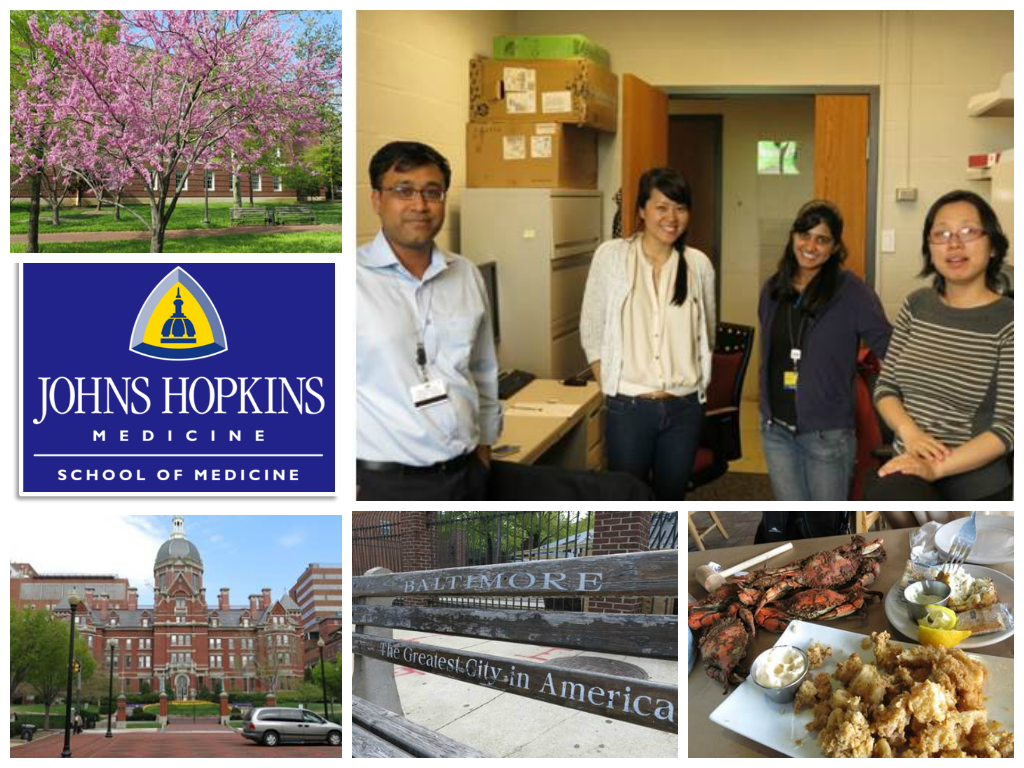Blogger: Maria Dung Cao
I have just spent 6 months away from home and worked at one of the well-known and respected breast cancer research groups in the field of magnetic resonance (MR) at Johns Hopkins University School of Medicine, Baltimore, USA.
Baltimore is an interesting city famous for its National history, good university, and high crime rate. To ensure the safety of the people, the city offers free shuttles and buses between campuses and also downtown.
Baltimore is a big contrast to the small town of Trondheim where I have my regular job as a postdoctoral fellow at the research group The MR Cancer Group at NTNU headed by Tone Frost Bathen. Our group has established a solid competence in the field of MR and cancer, being internationally recognized as one of the most experienced groups in large-scale cancer tissue analyses. So even though Trondheim and Baltimore are quite different, we are joined by our interest for breast cancer research.
So, what did I do in Baltimore? The research project includes biopsies from Norwegian breast cancer patients. The samples were collected for more than 10 years ago. They have been stored in liquid nitrogen (-190 Celsius) to minimized tissue degradation. The quality of the samples is well preserved even with long-time storage. This enables us to perform modern medical analyses that were not available at the time of sample inclusion.
We aimed to identify metabolites (small chemical compounds utilized and produced by the cells) and genes that can be used as new targets for breast cancer treatment. The studies of metabolites and genes are complementary and are important to improve the understanding of cancer biology and how cancer cells react to different treatment. We have performed the metabolite analysis here at NTNU and the gene analysis at Johns Hopkins.
We found that the metabolite profile (a spectrum of detectable metabolites in a sample) of breast cancer can be used to give information about breast cancer survival. Based on the metabolite profiles we were able to discriminate between patients that experienced cancer recurrence and died before 5 years and patients that survived more than 5 years. We identified a gene called GDPD5 that can be associated with tumor aggressiveness by regulating the choline phospholipid metabolism that is known to change in breast cancer.
At present, we are investigating the biological effects of targeting the GDPD5 gene in breast cancer cells. Also, we are developing system to deliver this treatment in animal models to investigate the effect of treatment in a living organism.
Findings from this project can be useful for developing new targeted therapies, especially for patients that have a more aggressive tumor and does not response well to currently available treatments.
A research stay abroad is not just about work, but also a chance to experience a new country, new friends, and colleagues. I have had a great time during my stay and have enjoyed working with people with diverse expertise in breast cancer research. I do think that a research stay abroad is a good opportunity to experience and learn something new.
It is also a good way to establish international collaboration between NTNU and other Universities around the world. However, from my experience, you do need to work hard and have a good and achievable project plan. The preparation beforehand can be time-consuming and tedious, which could make you lose interest, but we do have a good support system at NTNU and the people at the administration have been very helpful. So I would like to thank them, and a special thanks to the patients participating in this research project and Helse Midt-Norge for funding.



